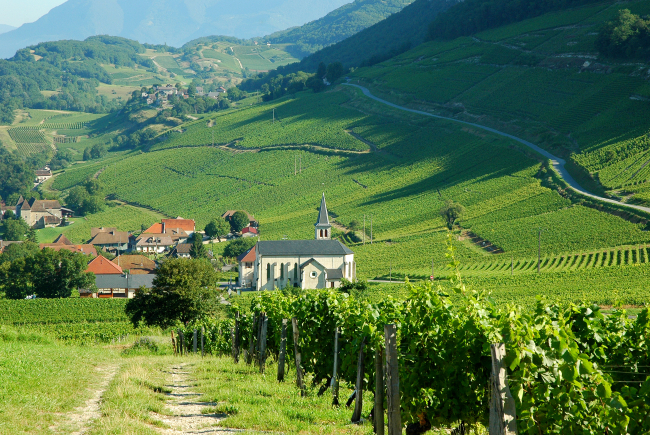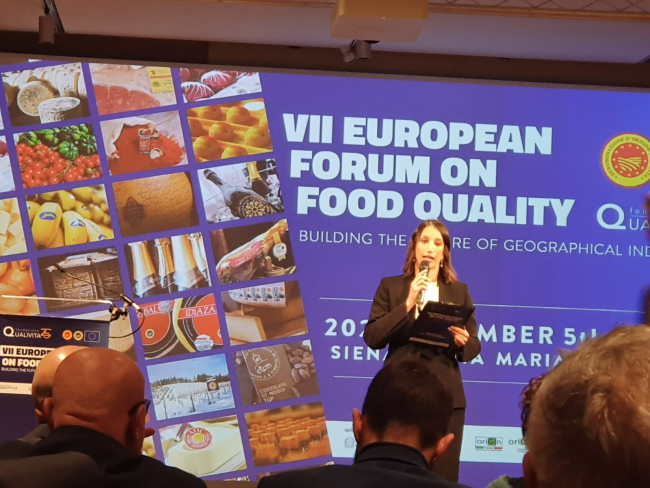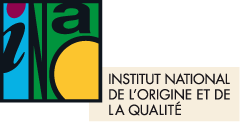This article is older and has been archived.
It remains accessible, but the information provided may be out of date or incorrect.
News
Web-conference: EGalim law, a solution for taking action with organic farming
A webinar on "Loi EGalim: une solution pour agir avec la Bio!" organized by WEKA, in partnership with Agence Bio and regional InterBio, took place on Wednesday June 22, 2022 at 2pm. Olivier Catrou, head of the INAO's "Organic Agriculture" department, spoke at this interactive conference.
With regard to organic farming, the so-called "EGalim" law of 2018, introduces the obligation as of January 1, 2022 that meals served in collective catering in all establishments entrusted with a public service mission include 50% products under quality and sustainable signs, with at least 20% organic products. Moreover, this obligation was extended by the 2021 Climate and Resilience Act to all mass catering establishments, including private legal entities, by January 1, 2024
This web-conference proposes ways to support and inform local authorities and establishments about the challenges and values of organic food, and give a voice to mass catering players.
20% minimum organic content on the plate: why and how?
The webinar addresses the following questions:
The issues behind organic in EGalim
Faced with the environmental, societal and economic challenges to be met on and by territories, what are the answers provided by organic? Speakers present the main features of this agricultural and agri-food production method: respect for natural cycles, links to the soil, water quality, preservation of biodiversity, limiting health risk factors, job creation...
Organic farming regulations
How do European regulations currently set the rules for the production of official signs of quality and origin (SIQO)? What role does INAO play? What are organic specifications? How and how often are producers inspected? Who does it involve? At what cost?
How are local authorities positioning themselves with regard to organic produce?
Beyond meeting the target set by EGalim, what motivates local authorities today to take an interest in introducing organic produce into their catering? Why have they made this choice, and how are they being led to exceed the target set by law?
The speakers
- Jean-François Deleume: doctor and member of the Eaux et Rivières de Bretagne association
- Olivier Catrou: head of the "organic agriculture" division at INAO David Mazeau: director of the Saint Junien (87) central kitchen
- Jean-Louis Demois: mayor of the commune of Écuillé, Vice-President of Angers Loire Métropole in charge of waste and the circular economy and President of SPL Anjou TriValor, a packaging waste sorting center
- Astrid Joubert: collective catering coordinator - InterBio Nouvelle-Aquitaine
- Agathe Le Gal: organic collective catering development officer - Initiative Bio Bretagne (IBB)
- Julien Picq: out-of-home catering mission officer at Agence Bio
Related document
Présentation d'Olivier Catrou, Web-conférence : loi EGalim, une solution pour agir avec la Bio
Présentation d'Olivier Catrou, Web-conférence : loi EGalim, une solution pour agir avec la Bio
All the latest news on events with INAO
INAO and INRAE are organizing a conference on the contribution of official quality and origin identification signs to...
News

News
INAO took part in the VII European Forum on Food Quality on December 5 and 6 in Siena, Italy. Organized by the...
News

News
A veritable showcase for French agricultural and gastronomic excellence for over 150 years, the Concours général...
News

News
